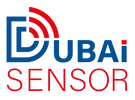As temperature rises in a paint curing automotive factory, RFID tags need to be robust
Summary
A manufacturer of automotive-suspension coil springs uses Radio Frequency Identification (RFID) technology to identify parts and monitor process status in an automated paint shop. Parts travel on dedicated transport frames; each transport frame, suspended from an overhead conveyor, is fitted with a high-frequency, high-temperature RFID tag. During the paint-curing cycle, temperatures may rise to 250oC (482oF) for more than 30 minutes. Contrinex high-temperature transponders operate reliably in this range.
Application
Automotive suspension components require highly durable surface finishes. A German manufacturer of suspension coil springs operates an automated paint-processing plant that degreases, spray-paints and heat-cures parts.
Springs travel through the plant on dedicated transport frames. RFID tags, mounted on the frames, identify individual parts. Throughout the process, read/write modules (RWMs), compatible with ISO/IEC 15693, interrogate the tags and update a centralized control system.
During the heat-curing process, the entire transport frame, complete not only with parts but also with transponder, passes through the curing oven. Curing temperatures reach 250oC (482oF) for more than 30 minutes. Temperatures this high are beyond the capabilities of many RFID tags. In the past, complex mechanical arrangements were needed to shield devices from elevated-temperature areas.
The customer requires RFID tags that not only withstand the high-temperature environment but also offer complete reliability and a service life of at least 2000 temperature cycles. Compliance with ISO/IEC 15693 is mandatory to ensure compatibility with existing RWMs.
Solution
Contrinex high-temperature high-frequency (HF) RFID tags are ideal for this application. These 50mm-diameter ConIdent® passive transponders with liquid-crystal polymer (LCP) housings are purpose-designed for operation at temperatures up to 250oC (482oF). They require no internal power source and are fully compliant with ISO/IEC 15693, ensuring compatibility with the customer’s existing equipment.
The tags, mounted directly onto the transport frames, withstand repeated exposure to elevated temperatures and easily achieve the required service life. ConIdent® technology is also highly tolerant of surface contamination, and the tags ensure continuous error-free operation in spite of unavoidable soiling with paint overspray. These Contrinex RFID tags also boast silicone-free construction – an essential anti-contamination requirement for paint-shop applications.
Contrinex transponders not only withstand the environment, they accommodate the variability of a transport frame’s travel path. Since the frame is not constrained from moving about its vertical axis, the exact path of the tag may vary from frame to frame – often by several millimeters. The system allows for this movement and produces reliable results that are independent of the exact tag position.
Contrinex RFID tags provide accurate and highly reliable part identification in a demanding high-temperature environment. The customer enjoys extended service life and robustness not available from alternative transponders, together with excellent value for money.
Recent Posts
-
Booster Pump Troubleshooting and Maintenance: How to Fix and Prevent Common Issues
1. Introduction Imagine turning on your faucet only to be greeted with a weak trickle of water when …22nd Apr 2025 -
Energy-Efficient Booster Pumps: Selection and Tips for Maximizing Performance
1. Introduction Imagine never having to deal with fluctuating water pressure, noisy pumps, or skyroc …19th Apr 2025 -
Booster Pumps for Sustainable Water Systems: Irrigation and Rainwater Harvesting Solutions
1. Introduction Water scarcity is no longer a distant threat—it’s a reality affecti …16th Apr 2025




